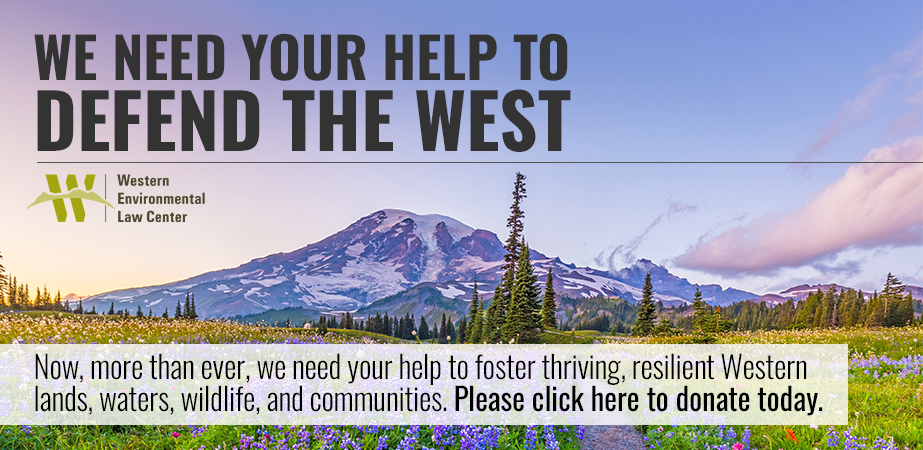Today, ExxonMobil natural gas subsidiary XTO publicly acknowledged the need for government regulation of oil and gas methane emissions. The announcement recognizes that voluntary measures alone are not enough to control this dangerous climate pollutant. Earlier last year, the American Petroleum Institute, whose membership includes a broad swath of the industry, announced a program of voluntary measures to help derail the mandatory methane emissions rules adopted last year by the Obama administration. In today’s announcement, ExxonMobil endorsed the need for government regulations to ensure that all oil and gas companies be required to address methane emissions and reduce the industry’s climate impacts.
In today’s announcement, ExxonMobil committed to adopting most of the requirements that are contained in Environmental Protection Agency and Bureau of Land Management regulations adopted in 2017, and which have been or are in the process of being suspended by the Trump administration. The BLM rule, which prevents methane waste and pollution on federal lands, is under immanent threat of a new administration rule that would rescind or substantially weaken the existing rule.
“The Western Environmental Law Center calls on ExxonMobil to communicate forcefully to the administration that gutting federal methane rules is not in the public interest, nor is it in the interest of the oil and gas industry,” said Thomas Singer. “For this large oil and gas industry representative to succeed with its support for these rules now under attack, it must show the Trump administration the writing on the wall. ExxonMobil must also be prepared to support states that seek to establish or strengthen controls on oil and gas methane regulations.”
Last fall ExxonMobil announced several voluntary measures it would take to reduce methane emissions but the commitment included only a few of the methane emissions control measures included in the federal regulations. The company later joined with eight other major oil and gas producers in adopting guiding principles for reducing methane emissions from their operations and encouraging other oil and gas companies to follow suit. At that time, the company said that “Since natural gas consists mainly of methane, a potent greenhouse gas, its role in the transition to a low-carbon future will be influenced by the extent to which methane emissions are reduced.”
Today’s announcement raises the stakes for the industry and the Administration to recognize the danger to the climate, and to the industry’s social license to operate, from ignoring methane pollution while promoting natural gas production and use.
Background:
The BLM methane waste rule, finalized in 2016, updates antiquated, 30-year old regulations. It requires companies to fix leaky, faulty equipment and reduce natural gas waste on public lands. According to the U.S. Government Accountability Office, enough natural gas was unnecessarily wasted and leaked between 2009 and 2015 to serve more than 6 million households for a year. The updated waste rule requires companies to perform leak detection and repair with affordable, off-the-shelf technologies, and restricts methane venting (deliberately releasing gas into the atmosphere), and flaring (burning off gas unused at the wellhead). The Trump administration’s decision to delay implementation of the BLM waste rule would allow industry to avoid these common-sense waste reduction measures, and continue to unnecessarily waste our publicly owned resources while the administration attempts to figure out how to kill the rule outright as a gift to its oil and gas benefactors. Methane waste not only shortchanges taxpayers, it harms public health and contributes significantly to climate emissions.
Waste: According to Interior, in 2014, oil and gas companies wasted more than 4 percent of the natural gas they produced on federal lands, sufficient gas to supply nearly 1.5 million households with gas for a year.
Public health: Methane released by the oil and gas industry comes packaged with other toxic pollutants— benzene, toluene, ethylbenzene, xylene — and smog-forming volatile organic compounds that harm communities.
Climate: Methane is a greenhouse gas 87 times more potent than carbon dioxide during the time it remains in the atmosphere.
Taxpayers: The BLM methane waste rule, if left in place, would earn taxpayers about $800 million in royalties on publicly owned methane resources over the next decade. Since 1980, lax provisions have resulted in BLM rubber-stamping industry requests to vent and flare natural gas and to avoid paying royalties. The U.S. Government Accountability Office estimates lost royalties at nearly $23 million annually under the antiquated regime.
Contacts:
Thomas Singer, Western Environmental Law Center, 505-231-1070, gro.w1752885186alnre1752885186tsew@1752885186regni1752885186s1752885186

